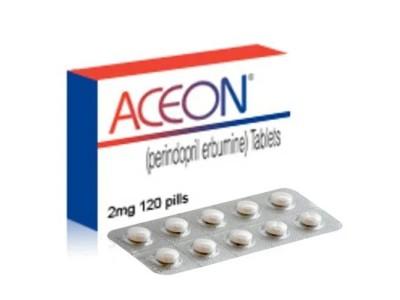Aceon, with its active ingredient Perindopril, is a medication belonging to the class of drugs known as ACE (angiotensin-converting enzyme) inhibitors. This medication is primarily prescribed to manage high blood pressure (hypertension) and other heart-related conditions. By inhibiting the action of certain enzymes in the body, Perindopril relaxes blood vessels, which leads to reduced pressure in the arteries. This effect helps the heart pump blood more efficiently and can be beneficial for individuals with hypertension, heart failure, or post-myocardial infarction (heart attack).
Aceon is available in different forms, such as tablets, and comes in various strengths to allow for individualized treatment. The choice of strength and dosage will depend on your specific medical condition and the recommendations of your healthcare provider.
Aside from its blood pressure-lowering properties, Aceon can also have secondary benefits. It has been shown to reduce the risk of heart attacks and strokes in certain individuals, particularly those with a history of cardiovascular issues. This makes it a valuable medication for managing not only blood pressure but also overall cardiovascular health.
However, it’s important to note that Aceon may have potential side effects and interactions with other medications. Common side effects can include dizziness and cough, and it can lead to elevated levels of potassium in the blood. As with any medication, it’s crucial to take Aceon exactly as prescribed by your healthcare provider and communicate any side effects or concerns with them to ensure its safe and effective use.
In summary, Aceon (Perindopril) is a medication prescribed to treat high blood pressure and heart-related conditions. It is an ACE inhibitor that helps relax blood vessels, reduce blood pressure, and lower the risk of heart attacks and strokes. Your healthcare provider will determine the appropriate dosage and monitor your response to the medication. While Aceon is generally well-tolerated, it can have potential side effects, and close communication with your healthcare provider is essential to manage your cardiovascular health effectively.
